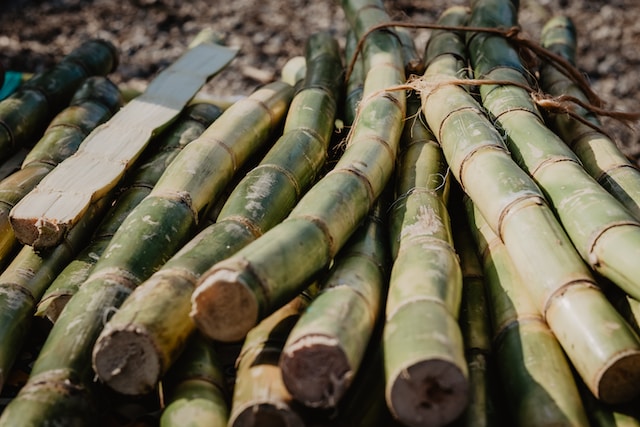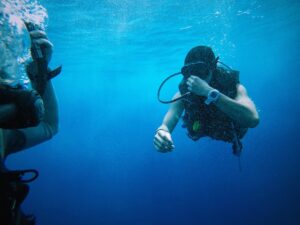Belize is free from major threats to physical security, but corruption remains a problem. Civil liberties are mostly respected.
Since independence, the economy has depended on a narrow range of exports and is highly vulnerable to dynamic global market forces.
Logging continues to be a problem, especially the illegal chopping of mahogany (Belize’s national tree). The coral reef is also a key economic driver and is under threat from climate change.
Belize Economic Development
As a formerly colonial nation, Belize was historically dependent on agriculture for its exports and employment base. Sugar and citrus were the predominant products, although forestry was once a significant sector of the economy as well (Central Bank, 1999). The current economic climate is characterized by instability resulting from an extremely narrow range of export products coupled with dynamic global market forces, and a heavy reliance on imports for consumption purposes.
In addition, the economy is affected by threats to agricultural productivity from climate change. A recent study by the Food and Agriculture Organization of the United Nations predicts that developing countries such as Belize could see a reduction in cultivable land of 11%, with the greatest decreases in sub-tropical areas. The Belize government has a few challenges related to these issues in its quest for sustainable development.
Belize also has a nascent energy sector, which relies heavily on foreign investment and multilateral debt to finance its deficits. The country is a member of the Caribbean Single Market and Economy (CSME), which provides for free trade and the free movement of goods, labor, and capital among CARICOM members. As with any free-trade agreement, the CSME poses risks and opportunities for Belize. Its members produce a similar palette of export products, making it difficult for Belize to gain a competitive advantage.
Moreover, a high level of corruption in government and political parties has been identified in Belize. The judiciary is not independent, and laws to fight corruption are not effectively enforced. Additionally, the constitution guarantees freedom of speech and the press, though there is a lack of diversity in the media and many people report being victimized or threatened for their work.
Despite these economic challenges, there are some positive signs for Belize. For example, the nascent tourism industry is providing an increasing source of revenue. Additionally, the Belizean government is leveraging its international debt in order to invest in marine conservation and climate change adaptation initiatives. In particular, a blue bond project that was launched by The Nature Conservancy (TNC) and its impact investing arm, NatureVest, enabled Belize to pay down USD 250 million of its external debt and protect an additional 30 percent of its ocean habitats.
Environmental Issues in Belize
As a small country surrounded by the Caribbean Sea, Belize is particularly vulnerable to global environmental changes. Rising ocean temperatures are causing coral bleaching and reduced fish catch, harming local livelihoods. More frequent and intense hurricanes are a constant threat to people and property. And coastal erosion is becoming a major issue in many areas of the country.
Unfortunately, the government’s attempts to safeguard natural resources and ecosystems are limited by a lack of funding, staff, and capacity. For example, the national parks are underfunded and suffer from poor management. The national park system needs to be revamped so it is sustainable, effective, and inclusive of the local community.
The other big challenge in the environment is protecting Belize’s precious biodiversity. The government has a strong commitment to this goal and is frequently updating its legislation, including the national parks act. The process allows NGOs and indigenous communities to provide input, so that they feel a sense of ownership over the final document.
Illegal logging is another problem that is damaging Belize’s forests and wildlife. This is exacerbated by the fact that roads created for logging also give poachers easy access to ripe hunting land. The government is working hard to crack down on this, but more efforts need to be made.
Another concern is oil exploration, which threatens the health and viability of the entire country’s ecosystems. The government’s willingness to use ministerial discretion to surrender protected areas to the oil industry also causes serious concern. This can lead to further destruction of habitats and pollution of watersheds and marine waters.
Despite these issues, there are positive signs in Belize’s environmental protection. For instance, the government recently tripled the size of protected areas inside its Mesoamerican Barrier Reef. It is also making progress on a ban of single-use plastic bags. Moreover, it has been working with TNC on finding nature and people-positive solutions to address its key environmental challenges. These projects align with TNC’s three global strategies: Protecting Lands, Oceans and Waters, Providing Food and Water Sustainably, and Tackling Climate Change. The work of these partnerships aims to build scientific capacity and improve the management of marine and terrestrial protected areas.
Poaching
Since its political independence from colonialism, Belize has diversified its economy through economic growth and development and the creation of new industries in response to market changes. The country is now one of the region’s more developed economies, with a high level of national income and improved access to education. However, the country still faces considerable challenges.
In recent years, the Belizean economy has faced significant financial challenges, including a severe trade imbalance and a growing stock of public debt. In addition, a series of corruption scandals has tainted the government’s reputation internationally, undermining the public’s confidence in the country’s leadership. A restructuring of public debt and a renewed commitment to good governance are necessary for restoring Belize’s financial credibility.
The country also struggles to manage the environmental impacts of its economic development. The country’s marine ecosystem is crucial for both local and international economies. Commercial fisheries and tourism–particularly marine-based tourism–make up the majority of Belize’s total revenue.
Yet these ecosystems are vulnerable to pollution, unsustainable development projects, and climate change impacts such as stronger storms, coastal erosion, coral bleaching, and sea-level rise. In fact, the Belize Barrier Reef System was placed on UNESCO’s List of World Heritage in Danger in 2009, and it is currently threatened by offshore oil exploration, fishing, and coastal development activities.
Belize has recently committed to taking more dramatic steps towards marine conservation. The country plans to boost coastal blue carbon projects, develop governance frameworks for domestic and high-seas fisheries, and implement a comprehensive marine spatial planning process. It has also vowed to protect 30 percent of its ocean territory by 2030, an unprecedented goal among the Americas.
Despite these commitments, the government continues to face corruption accusations. A Supreme Court ruling in 2020 found that the UDP administration had improperly spent $645 million, and members of the business community allege that favoritism influences the awarding of licenses and government contracts. The government has enacted several reforms in the past decade, including the introduction of a bill to offer protection for whistleblowers. The country’s electoral laws are generally fair and democratic, although a lack of transparency in the nomination of cabinet appointees has undermined public confidence in the government.
Oil Exploration
The emergence of oil as Belize’s primary export has increased concerns about the country’s narrow economic base and its vulnerability to future climate change. As a result, efforts are underway to diversify the economy through agricultural production and niche markets such as organic produce and tourism.
Although the government has taken steps to reduce poverty and promote sustainable development, challenges remain. Many Belizeans are still reliant on cash crops, such as sugar and citrus, that require large amounts of imported inputs. The country’s dependence on imports also makes it vulnerable to fluctuations in international commodity prices.
Environmental groups have lobbied the government to ban offshore oil exploration, which puts at risk one of the world’s most pristine marine ecosystems and threatens the livelihoods of the people who depend on it for income. Oil drilling also threatens the country’s tourism industry, which brings in more than $200 million a year and contributes to a significant percentage of GDP.
Despite its small size and lack of natural resources, Belize has become a hotbed for offshore oil exploration. In a few short years, a company called BNE has produced more than 3,000 barrels of sweet crude per day from five wells in the northern part of the country. In addition to the revenue generated by oil production, BNE has pledged 1% of revenues to an environmental protection fund.
However, the emergence of offshore oil has raised concerns about corruption and poor governance. Several local politicians and business leaders have been linked to organized crime and have been jailed on corruption charges. In addition, a new law that allows the government to take 40% of the profits from the offshore industry could further erode investors’ confidence in the country.
The nation’s need for improved infrastructure also poses a challenge. Road construction can harm the environment by destroying wetlands and other natural habitats, but rural families that rely on subsistence farming have an essential need for roads in order to get their products to market.
In addition, women’s rights are being threatened by discrimination in the workplace and in public life, including in schools and churches. The country’s legal system has taken some positive steps to protect these rights, but more work needs to be done.




